| Srl | Item |
| 1 |
ID:
143083
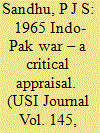

|
|
|
| 2 |
ID:
128135
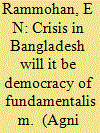

|
|
|
|
|
| Publication |
2013.
|
| Summary/Abstract |
Bangladesh was born in December 1971, after Pakistan rejected installation of the Awami League of East Pakistan, that had won the national elections held in end 1970 and then proceeded to crush democracy in East Pakistan by arresting the leaders of the Awami League and brutally suppressing its democratic movement. The Awami League and the people of East Pakistan were thus forced to resort to guerilla warfare and fight for independence. In this fight the Muslim population of East Pakistan got divided. Some Bengali Muslims who supported the fundamentalist right, sided with Pakistan in its attempt to crush the move for independence by the majority of Bengali Muslims.
|
|
|
|
|
|
|
|
|
|
|
|
|
|
|
|
| 3 |
ID:
126122
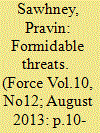

|
|
|
|
|
| Publication |
2013.
|
| Summary/Abstract |
China does not need to go to war with India. Pakistan, at present, is satisfied with its strategy of proxy war against India. However, a limited two-front war into the future started by Pakistan in Northern Kashmir (Siachen) is not ruled out; Chinese involvement in it will be indirect with its asymmetrical capabilities. India's political and military leadership, unfortunately, has shown little appreciation of what it may be up against.
China accomplished the incredible by its three-week intrusion in April 2013 in Northern Ladakh against India. With mere 30 border guards, it did successful military coercion resulting in a total capitulation of India's political leadership. This showed a lack of understanding in Delhi of Chinese diplomacy where counter-coercion does not necessarily translate into war. Moreover, China which is pitted against the US for supremacy in Asia would stay away from a border war with India. However, its coercive diplomacy, especially one achieved with minimal show of strength, has provided numerous strategic gains to Beijing.
|
|
|
|
|
|
|
|
|
|
|
|
|
|
|
|
| 4 |
ID:
134384
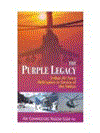

|
|
|
|
|
| Publication |
New Delhi, Pentagon Press, 2012.
|
| Description |
xiii, 296p.Hbk
|
| Standard Number |
9788182746886
|
|
|
|
|
|
|
|
|
|
|
|
Copies: C:1/I:0,R:0,Q:0
Circulation
| Accession# | Call# | Current Location | Status | Policy | Location |
| 057900 | 358.41830954/ISS 057900 | Main | On Shelf | General | |
|
|
|
|
| 5 |
ID:
132806
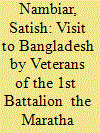

|
|
|
|
|
| Publication |
2014.
|
| Summary/Abstract |
The idea of such a visit has its origins in a brief exchange between Lieutenant Generals Satish Nambiar (Y Company Commander during the 1971 War) and YM Bammi (GSO-2 in 101 Communication Zone Area) when the latter (who was nominated for travel to Bangladesh as part of the yearly Adjutant General's Branch sponsored visit in mid-December 2013) wished to obtain some photographs of the Jangi Paltan's actions. He was referred to Lieutenant Colonel KS Puntambekar (C Company Commander during the War). This reference by YM Bammi, and the fact that he was able to establish contact with Zohal Haq Munshi (the freedom fighter who, together with many others, was with the Paltan from prior to the War right through to the entry into Dhaka on the afternoon of 16"' December 1971), spurred Keshav
Puntambekar into action in his own inimitable style. In mid-January 2014, he got in touch with Lieutenant General KS Brar (who was the Commanding Officer of the Jangi Paltan during the war) and a number of other colleagues suggesting that we travel together as a group to Bangladesh to revisit the sites where the Jangi Paltan fought memorable battle actions during the War of Liberation in 1971.
|
|
|
|
|
|
|
|
|
|
|
|
|
|
|
|